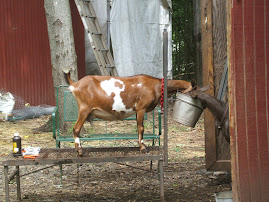While working as a cheesemonger I have had many people ask for lactose free cheese. The good news is many cheeses are naturally lactose free. So what exactly is lactose? Lactose is milk sugar and accounts for about 5-8% of milk solids. People are lactose intolerant when they cannot break down the lactose. The small intestine produce an enzyme called lactase which breaks down the lactose so it can be absorbed into the bloodstream. If you are lactose intolerant, you do not produce enough lactase to break down lactose.
Unlike other mammals, humans have adapted the ability to continue to produce lactase as they age. However, some people do not maintain this same ability and become lactose intolerant. There are many products available to help with this deficiency such as lactose free milk and lactase supplements. Cheese can be a great way for lactose intolerant people to consume their recommended daily dose of calcium.
The great news is that the wonderful bacteria that make cheese love to eat lactose! When making cheese, a bacteria is added to milk and the milk will separate into cuds and whey. Most of the lactose will be left behind in the whey and whatever is left in the curds will be consumed by bacteria during the cheesemaking process. The older a cheese is the less lactose will be present because the bacteria have more time to eat up all those yummy sugars.
Some cheeses are made from whey such as ricotta and gjetost. These cheeses will contain lactose. When looking at the nutritional label of any cheese notice the amount of sugar. This listing of sugar could also be called lactose as lactose is milk sugar. If a cheese has no sugar it has no lactose. Some cheeses are labeled lactose free but many are not labeled so read the facts if you have any doubt.
What I didn't know is that lactose is often added to products as a filler such as bread, baked goods, cereal to prevent caking and may also be added to frozen or canned vegetables to prevent discoloration. Be sure to read your labels if you are lactose intolerant because it may be hiding in the product as lactose or dry milk solids or whey.
Some people who consume a cow's milk cheese such as cheddar and have an adverse reaction may think they are lactose intolerant. If there is no lactose in the cheese you cannot be reacting to the lactose. You may be reacting to something else in the cow's milk. You may want to try goat's milk or sheep's milk cheese. Goat's milk cheeses are generally considered easier to digest. You may also find that raw milk cheeses are easier to digest because there are more natural bacteria present doing all the hard work for you.
There is a big world of cheese out there, so try a little bit of something new. Try a goat cheddar, a goat Gouda, or a goat mozzarella. (Yes, I do LOVE goat cheese) You may be surprised by a delicious cheese that makes your body happy!
Subscribe to:
Post Comments (Atom)
























No comments:
Post a Comment